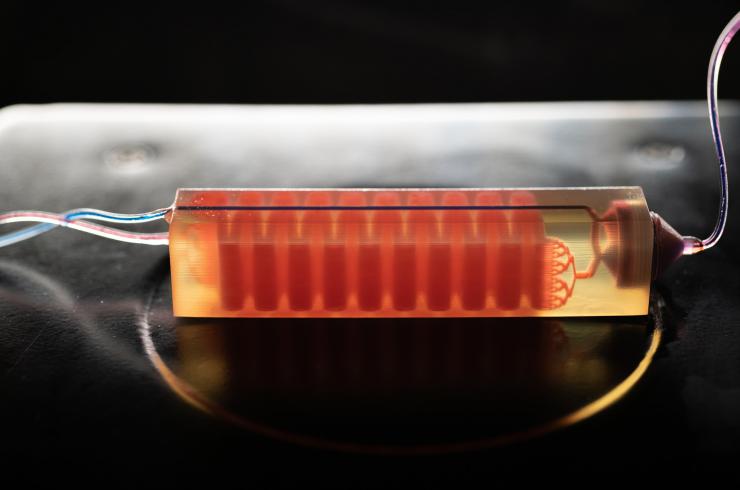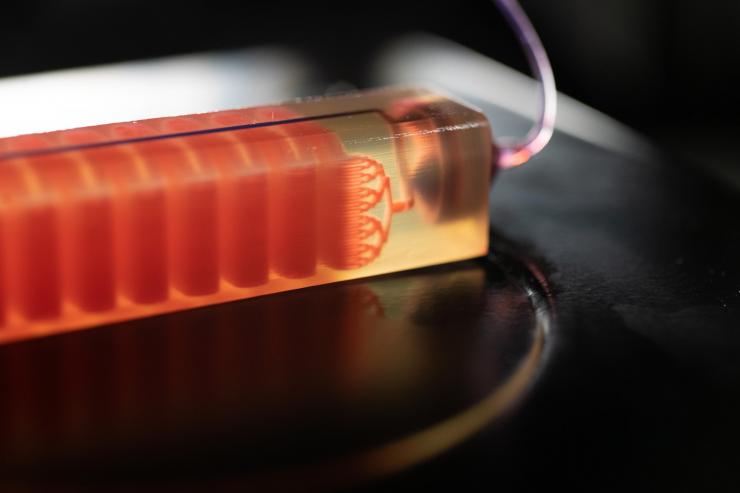Inventors at Georgia Tech have developed a portable, disposable, 3D-printed microfluidic platform that can isolate viable circulating tumor cells (CTCs) from blood samples. This technology is capable of identifying new biomarkers as diagnostic and therapeutic targets. The platform will enable routine, reliable extraction of CTCs from patient blood samples and has the potential to transform clinical management of cancer and basic and clinical research.
- Minimally invasive – potentially eliminates the need for invasive serial biopsies
- Cheaper – simple manufacturing process
- Disposable - size and materials allow for easy disposal
- Versatile - has multiple applications
- Cancer biomarker diagnostics and analysis
- Circulating rare cell identification for predicting disease risk
Cancer spreads through the body as migratory circulating tumor cells (CTCs). The isolation and analysis of rare CTCs hold great promise for providing insight into blood-borne metastasis, as well as monitoring cancer response noninvasively following therapeutic interventions. There exists a need for a device capable of capturing tumor cells in circulation.

A 3D-printed cell trap developed in the laboratory of Georgia Tech Assistant Professor A. Fatih Sarioglu captures blood cells to isolate tumor cells from a blood sample. (Photo: Allison Carter, Georgia Tech)

3D printed blood cell trap
